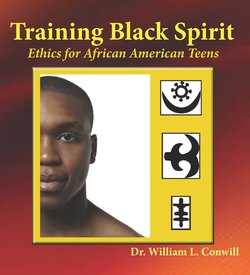Читать книгу Training Black Spirit - William L. Conwill Ph.D. - Страница 8
На сайте Литреса книга снята с продажи.
ОглавлениеForeword
William L. Conwill has a remarkably versatile background in psychology, philosophy, theology, education, martial arts, and fatherhood. This wealth of experience and knowledge makes him more than qualified to offer character-building and consciousness-raising guidelines to teenagers, especially to African American youth who are disproportionately vulnerable to being adversely affected by endemic social injustices and by what progressive, emancipatory theologians call the systemic evils of our society’s interlocking inequalities of race, class, and gender.
These evils amount to injurious forms of structural violence—whether blatant or subtle in how they are manifested. According to the late Martin Luther King, Jr.’s social vision, there are three giant evils in the world that should be countered, and to the extent possible, eradicated: racism, poverty, and militarism. These constitute the larger backdrop for the local stage upon which young black men and women can deploy the ethics explained in this insightful handbook.
The guidelines presented in this book represent ethical principles and spiritual values that, if truly comprehended and appropriately applied, can help black youth make their way through the challenges they are likely to face in their passage from childhood and adolescence into full adulthood. The journey toward adulthood is often complicated by various sorts of constraints and obstacles that need to be overcome through effective problem solving and an optimistic sense that there is light at the end of the tunnel.
The wider environmental or societal context in which the journey toward adulthood takes place is ultimately influenced by forces much larger than the interpersonal interactions and conflicts that are the immediate sources of the dilemmas youth must learn to navigate skillfully and responsibly. Navigation across a challenging terrain can be enhanced if informed and guided by principles that have been tried, tested, and adapted for new generations.
Developing principled behaviors and deeper understandings of the world may lead individuals to directions where the application of ethical precepts may have implications for dilemmas at the micro and macro levels. In other words, some of the spiritual values addressed in this engaging text may have relevance beyond the immediate domain of everyday personal and interpersonal dynamics. At moments, the personal is political, ramifying into a more far-ranging field of public interest, power, and social change. To the extent that this happens, ethics and politics converge, becoming complementary dimensions of social action where personal responsibility and collective interests intersect and interplay.
In this book, Dr. Conwill interprets and shows the enduring relevance of ancient principles and values for present-day readers who should encompass adolescents as well as the adults who care about and mentor them. Toward this goal, he elaborates on the spiritual meanings and ethical implications of the key concepts and precepts associated with Ghanaian, specifically Akan, Adinkra symbols.
In his brief and easily digestible explanations, which are coupled with recommended activities, Dr. Conwill encourages youthful readers to become actively involved in thoughtful and thought-provoking exercises that take insights from the text into personal practice and lived experience.
Through this behaviorally or practice-oriented approach, which draws on his expertise in the philosophy and art of self-defense, Dr. Conwill demonstrates the enduring relevance of a West African tradition of wisdom to our lives and those of our children today. He shows how Adinkra concepts can influence the ways young people defend themselves against and move forward in their life journey in spite of the prevalence of destructive influences in the world.
Black youth can benefit from ethical and spiritual training to prepare themselves for the complexities and contradictions that characterize today’s society and world. Our society gives higher priority to building prisons than schools. A 2008 Pew Center report predicted that if current trends in racial profiling and institutionalized racism in the criminal justice system continue, we can expect to see as much as a third of the black male population incarcerated in the future. Moreover, the incarceration rate for black women is also rising, so the problem is not only one that targets males.
On the more positive side, there are trends that promote the reintegration and revitalization of black community life, assigning youth to constructive roles rather than assuming their inevitable descent into delinquency and troublemaking. Besides the successful school programs that receive very little attention in the media, there are extracurricular and community-based projects employing hip-hop-inflected pedagogies for mobilizing youth toward community- building outcomes.
Dr. Conwill seeks to achieve the objective of communal revitalization through a different means. He translates and encodes Adinkra precepts into black youth’s everyday practical consciousness. His project situates ethics for black youth within a historical context in which the relevance of African cultural heritage persists in African American identity and well-being.
Training Black Spirit deserves to be widely read and discussed in homes, schools, community centers, churches, and other community venues, such as barbershops and other settings where grassroots philosophers assemble to reason and rap. I recommend the book as well as its author, who is available for speaking engagements, group encounters, and training sessions related to rites of passage and leadership development among youth. His extensive expertise, knowledge, and wisdom make him an exemplary role model and educator.
—Faye V. Harrison, Ph.D.
President
International Union of Anthropological and Ethnological Sciences
